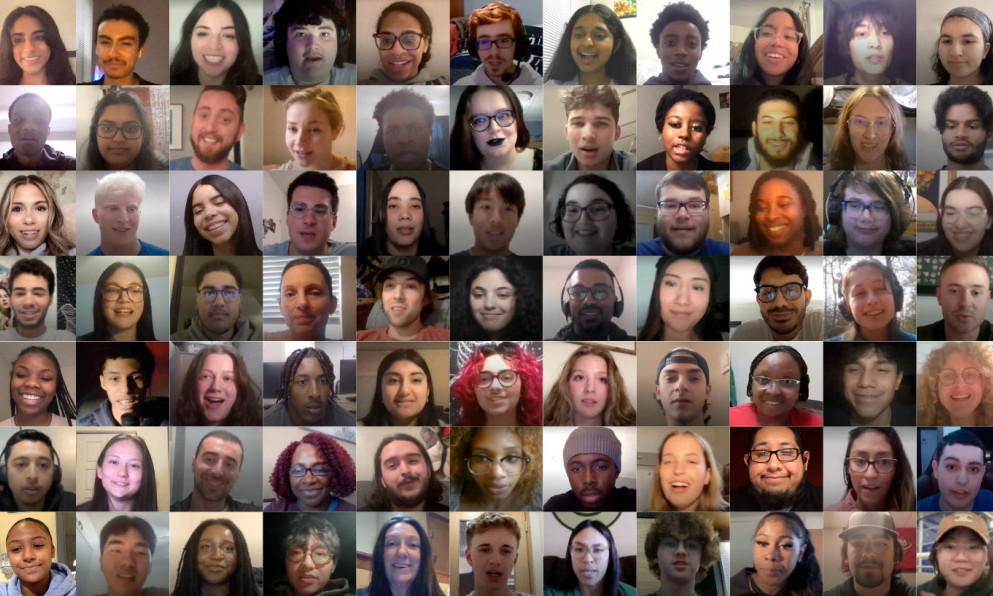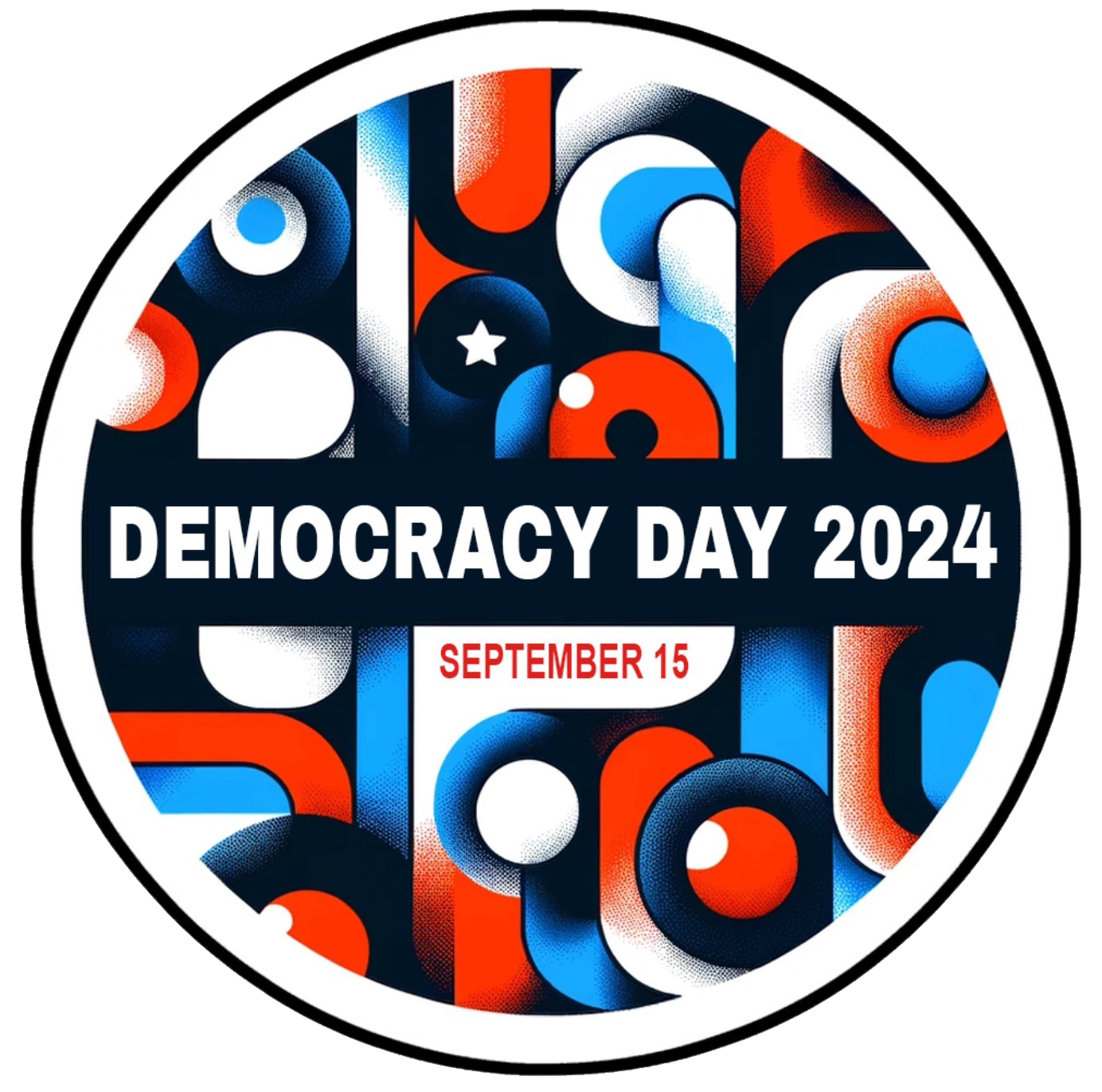This story is published as part of U.S. Democracy Day and the Utah College Media Collaborative, a cross-campus project bringing together emerging journalists from Salt Lake Community College, the University of Utah, Utah State University and Utah Tech University.
With the 2024 election rapidly approaching, Utah college students are the focus of several efforts designed to help them learn how to effectively reach across the aisle. The goal is to foster constructive dialogue about political issues that matter to them.
Both the Utah Governor’s Office and nonprofit Unify America are attempting to bridge the partisan divide that mars the possibility for positive discourse among young people in today’s political arena.
Their efforts are coming off the heels of studies and even casual observation which have shown in recent years how fraught United States politics is with rampant division and disagreement.
One 2023 study from the Pew Research Center said that 65% of Americans report feeling exhausted when thinking about US politics. By contrast, 10% of respondents in the same study reported feeling hopeful about the state of US politics.
Utah Governor Spencer Cox made a similar observation recently, stating on the National Governor Association (NGA) webpage for Cox’s Disagree Better campaign that he is “more convinced than ever that there is an ‘exhausted majority’ ready and able to change our political culture.”
Dr. Natasha Seegert, an associate professor of communication at the University of Utah who runs a Unify America program that teaches students how to have constructive dialogue on hot-button issues, said “Students report being burned out by polarization and by the inability to have an honest conversation for fear of offending, or of being reported on social media.”
But while exhaustion, disillusionment and burnout are real issues for young voters, Cox’s “ready and able” Americans – on both sides of the aisle – are primed to see change.
Disagree Better
Gov. Cox has made the decision not to sit idly by while the two major political parties sow their divisive rhetoric. He hopes to combat Americans’ alienation from politics with his Disagree Better campaign, which he launched as Chair of the NGA in July 2023.
According to his Senior Advisor for Federal Affairs, Gordon Larsen, who was Cox’s lead staffer for Disagree Better, the idea came from the challenge that Cox observed “over 10 years ago” in reaching bipartisan consensuses on important issues like healthcare, education and infrastructure.
“It’s really hard to make progress on traditional policy topics when both sides see the other as this existential threat and [are] unwilling to even have a conversation,” Larsen said. “So, we thought maybe we can go upstream of those policy conversations and try to make a difference with the tone of our discourse and help governors model what healthy conflicts looks like.”
“We’re not asking anyone to set aside their beliefs,” he continued, “but rather to not frame the other side as a threat or a menace and instead show Americans how you can disagree on consequential topics … without hating each other.”
The Disagree Better campaign ran from July 2023 to July 2024 and included a series of ads that featured over 20 governors and other elected officials from around the nation.
Everyone recorded the ads with their political opponents, modeling a campaign video that Gov. Cox made with his Democratic opponent in the 2020 gubernatorial election, Chris Peterson.
“The ads have been received very well,” Larsen said. “There’s a lot of enthusiasm among governors.”
Larsen said Stanford University researchers studied the 2020 ad with Cox and Peterson, as well as some of those that were a part of last year’s Disagree Better campaign, and found “people who viewed these ads by governors, where you have a Democrat and a Republican next to each other, did [see a reduction in] their partisan animosity.”
Young college-aged voters, however, were not necessarily the sole target audience of the ads for Disagree Better.
While the ads remain up on YouTube, young adults do not connect as strongly with ads designed for television as they do with direct involvement on the college campuses where they learn, socialize and organize.
“One thing we’ve discovered is that young people want to talk about the issues of the day – they’re interested, and they want to learn,” Larsen said. “But if they’ve come of age in the last 10 or 15 years, all they’ve seen, at least at the national level, is this really divisive, bitter animosity and contempt towards the other side.”
This is why Cox’s office also made engagement with college campuses a focal point of Disagree Better.
“What we’ve tried to do with respect to young people is show them the right way of [disagreeing] and help the colleges that are interested in producing that right environment,” he continued, before referencing the direct work that the governor’s office did with the nonprofit Braver Angels.
Last year, the group hosted an open discussion forum at Utah State University. “They pick[ed] a topic and students [came], and some faculty, and [they had] the opportunity to express their views on the topic, followed by someone from the opposing view standing up and sharing their views,” Larsen said. “By the end of it, you saw people who clearly had not planned on sharing their views … realize, ‘This is a safe space for me to share what I think about this topic without getting shouted down.’”
Additionally, the president of Unify America, Michelle Sobel, gave a speech at a Disagree Better convening in Nashville, Tennessee, this spring.
Sobel’s talk focused on the nonprofit’s Unify Challenge College Bowl program and how “they’re working with college campuses to put students from very different backgrounds and political beliefs [together] and give them a chance to get to know each other.”
“That turns out to be one of the very effective methods of helping people see the humanity on the other side and assume some good faith on the part of someone with whom they disagree, [the idea of] just helping them develop a personal relationship,” Larsen said.
“Once you’ve developed a personal relationship, then it’s a little bit easier to have a conversation about politics and topics that might be more divisive without seeing the other side as a bad person, even if you disagree with them,” he added.
The Unify Challenge College Bowl was first hosted in Utah by Professor Leah A. Murray at Weber State University. The challenge is now also coordinated at the U, by Seegert, and at Brigham Young University.
Unify Challenge College Bowl
Unify America was incepted in 2020 by Harry Nathan Gottlieb, who had previously founded Jackbox Games. Jackbox Games is an online gaming behemoth that became extremely popular during the pandemic because it allowed socially distanced friends and family to come together virtually, playing games and solving puzzles together on the platform.
Unify America’s Chief Community Officer Morgan Lasher said Gottlieb’s background in programming inspired the nonprofit’s founding and informed his expertise in “technology and taking complex issues and keeping them engaging and easy to interact with.”
When describing Unify America’s mission, Lasher said “[It’s] about replacing political fighting with collaborative problem solving.”
Unify America does this by partnering with colleges and universities across the nation in their Unify Challenge College Bowl. In the challenge, which Seegert now runs in her classes at the U twice a year as actual class assignments, individual students are paired with other students from colleges across the U.S. in one-on-one Zoom conversations.
Each participant takes a Unify America-crafted survey on hot-button political topics, ensuring that they are paired with others who hold different views than their own.
Lasher said that Gottlieb’s initial vision was based on his asking of the question of “‘How do we harness the power of different perspectives, and, instead of devolving into fights and cage matches, how do we intentionally use them, find our shared goals, and put our different perspectives to use to solve problems together?’”
Seegert reported that the results among her participating students have been overwhelmingly positive.
Unify America even produced an uplifting response video from some of the students who participated in the challenge with Seegert in fall 2023.
“Students reported that [it] was one of the most impactful political conversations they have had, as it allowed for them to engage and explore … topics that they either don’t discuss, or only discuss with people who hold the same views,” Seegert said.
Constructive communication patterns
Seegert said the Unify Challenge College Bowl is so impactful partially because of the communication agreements that students craft before their Zoom conversations. These agreements help the students avoid some of the communication pitfalls that often occur in the modern political era.
“Our current communication patterns frequently prevent all individuals from actively engaging in a dialogue. There are individuals who dominate the conversation, some who belittle others, some who make sweeping generalizations or speak on behalf of others, and then there are those who simply want to challenge or persuade everyone to think the way that they do,” Seegert explained.
“These patterns,” she said, “get us stuck into an ‘us vs. them’ binary where people are not really listening to each other.”
Adding to Larsen’s comments about how developing a personal relationship before engaging in debate can be helpful to reaching potential solutions, Seegert said “Starting with personal experiences so we can better understand how individuals have been impacted, what is really important to them, and also where they might feel torn on the issue will lead to a more significant impact than simply providing a litany of researched facts that too often result in individuals feeling belittled and unheard.”
While researched facts are often considered the “backbone” of argumentation, over-using facts too often results in an adversarial contest of sorts, according to Seegert. When asked what else college students can do to avoid adversarial encounters, she said “cultivating curiosity” is key.
“If we are curious, we are willing to learn something about others,” she explained. “If we are willing to learn and to engage, then we can start to better understand others. If we understand others, we can open ourselves up to what is really important for other perspectives and where there might be overlap in values.”
Understanding, according to Lasher, can be hurt by the capital that is accumulated by what best-selling author and journalist Amanda Ripley calls “conflict entrepreneurs,” or corporate and/or cultural forces that actively profit off the current political division in the U.S.
“Our goal is [to give] people outlets where you can actually see the power of different perspectives and use them to make real impact, so you can pop out of those potential bubbles that are happening in TV, in traditional news media, in social media, even on college campuses,” Lasher said.
The “bubble” that Lasher references may also be called an “echo chamber,” a term that has been popularized in the last 20 years and refers to when an individual occupies a space that does not challenge their own views.
But Lasher said this is not what American voters want. Instead, she believes more so in one of the primary mantras for Unify America, which is that Americans—even those on different ends of the political spectrum—have more in common than they might believe at first.
Kyle Forbush reported and wrote this story as a journalism student with The Globe at Salt Lake Community College. His article is published as part of the Utah College Media Collaborative, a statewide project in partnership with Amplify Utah.





